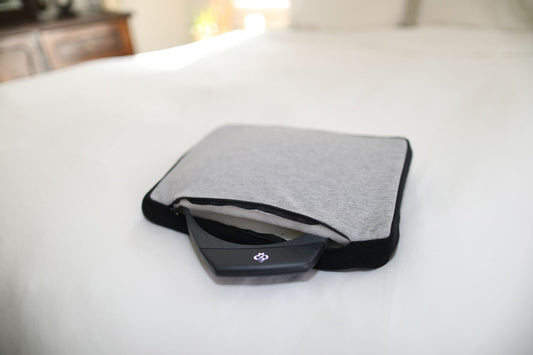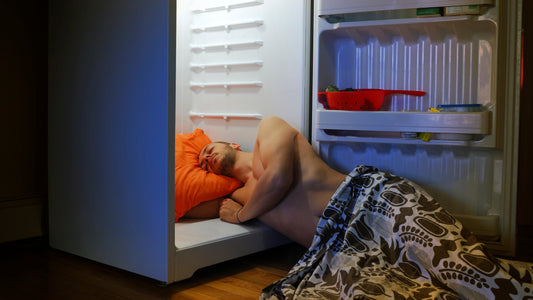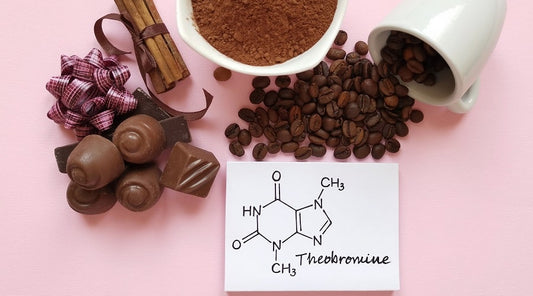Insomnia remedies to help you fall asleep faster
If you struggle with insomnia, you may be tempted to start relying on sleeping pills to overrule your mind’s tendency towards nighttime wakefulness. Unfortunately, it’s easy to become addicted to sleeping pills, which makes you unable to fall asleep without them.
According to research, 80% of people who take sleeping pills report feeling negative side effects such as drowsiness, dizziness, and headaches the following day. Still, some people feel like sleeping pills are their only option for alleviating insomnia.
What if there was a safer, more effective way to get a good night’s sleep? Here are some natural remedies for insomnia that could make a difference for you. Remember, it’s wise to consult your doctor before trying any of these sleep remedies.
1. Valerian root
Valerian root has numerous healing properties, including relieving anxiety, depression, and insomnia. Studies show that valerian root can improve sleep quality without negative side effects.You can take valerian root as a supplement or brew it as a tea about an hour before bed.
2. Magnesium
Not having enough magnesium is linked to insomnia and other sleep problems. If you think you might have low magnesium levels, it might be worthwhile to add more magnesium-rich foods such as avocados, bananas, dark chocolate, and nuts to your diet or take a magnesium supplement. You can even put magnesium flakes in your bath and absorb the mineral through your skin.
3. Lavender
There’s nothing more soothing than the smell of lavender, in my opinion. Smelling lavender oil before bed has been shown to improve sleep quality and help you wake up feeling refreshed. You can diffuse lavender essential oil to get this effect or put a lavender sachet under your pillow.
4. Passionflower
This herbal sleep remedy is quite popular, and it’s said to have a nice mild taste. According to research, passionflower can improve your total sleep time and sleep efficiency (the percentage of time you spend asleep compared to your overall time spent in bed). You can take passionflower as a tea before you go to sleep.
5. Glycine
Glycine is an amino acid that promotes good sleep by lowering your body temperature to signal that it’s time for bed. Studies show it can help you fall asleep faster and wake up well-rested and clear-headed. Glycine comes in a pill form or a powder to be mixed with water. It also occurs naturally in meat, eggs, fish, spinach, kale, beans, and kiwis.
6. Tryptophan
We’ve all heard about the effects of consuming too much tryptophan on Thanksgiving. Turkey isn’t the only food that’s high in tryptophan, though. Cheese, almonds, and bananas also have plenty of this essential amino acid. Tryptophan produces serotonin, which makes you feel relaxed and sleepy. It has been shown to improve sleep in adults who have trouble sleeping.
7. Ginkgo biloba
The leaves of the ginkgo biloba tree are more of an indirect insomnia remedy. Research shows that ginkgo biloba extract can reduce anxiety, which can be a leading cause of insomnia. Take it 30 to 60 minutes before bed to relax your body and calm your mind.
8. L-theanine
This amino acid is found naturally in tea leaves. Rather than being a sedative, L-theanine has been found to improve sleep quality through relaxation. It’s best to take up to 400mg of L-theanine as a daily supplement.
9. Chamomile
Known for its calming properties, chamomile may promote healthy sleep as well. In one study, postnatal women with poor sleep quality who drank one cup of chamomile tea a day were much more likely than the control group to see an improvement in their sleep problems. Add a cup of chamomile tea to your evening routine and see if it helps you.
10. Magnolia
Although there haven’t been extensive studies on this yet, bark from the magnolia tree is thought to improve sleep and relieve anxiety. Magnolia bark has a history of being used in traditional Chinese medicine as a tincture. Nowadays, you can easily find it in pill form.
11. Gamma-aminobutyric acid (GABA)
This is a natural compound in your brain that functions as a neurotransmitter to decrease activity in your nervous system. According to research, taking GABA supplements may help you fall asleep faster if you struggle with insomnia.
12. Lemon balm
This herb looks similar to mint and has a lemon flavor. One study shows that taking a combination of lemon balm and valerian root can help treat restlessness and insomnia. Add both lemon balm and valerian root to your tea before bed in order to improve your sleep quality.
13. Tart cherry juice
Instead of drinking coffee or alcohol before bed (both of which can negatively impact your sleep), consider having a glass of tart cherry juice. Research shows that this juice can increase sleep quality and sleep efficiency. This is because tart cherry juice is naturally high in melatonin.
14. Hapbee
If you’d prefer to try a natural sleep remedy that doesn’t need to be ingested, check out Hapbee’s Bedtime and Deep Sleep signals. Hapbee is a wellness wearable that allows you to feel various sensations without experiencing any of the negative side effects of substances.
If you struggle with insomnia, put on the Bedtime signal about an hour before bed. When you climb into bed, switch to the Deep Sleep signal and leave the Hapbee under your pillow. With our 30-day money-back guarantee, you have nothing to lose. Try Hapbee today.
The post 14 Natural Sleep Remedies You Need to Try appeared first on Hapbee - Choose How You Feel.










